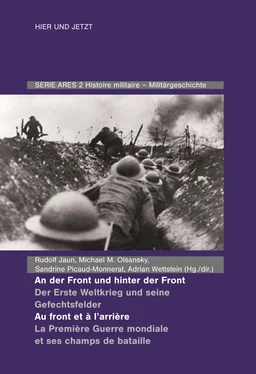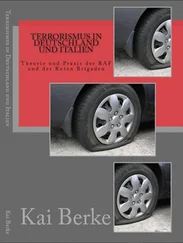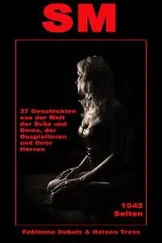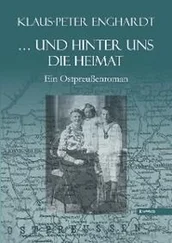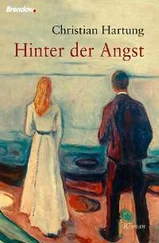Military crime invariably rose after heavy casualties with particular problems during the first winter of the war, following the near destruction of the old regular army during First Ypres, and during the winter of 1917/18 following Passchendaele. Absence without leave and drunkenness remained relatively high throughout the war but self-mutilation was not a significant problem. There was something of a collapse of morale within the Fifth Army during the opening of the German spring offensive on the Western Front in March 1918, although the figures available for sickness, crime and discipline for it between April 1917 and March 1918 show little signs of any serious morale problem. Even the experience of Passchendaele had not dented the continued belief by British soldiers that they would ultimately triumph. Consequently, in March 1918, many fought on until surrounded or overwhelmed. Fortunately, logistic support generally remained functioning, and sufficient reinforcements were fed into the battle to ensure a wider collapse did not occur.
There were some instances of collective indiscipline, the best-known being the events at the «Bull Ring» base camp at Etaples between 9 and 15 September 1917 although it has been exaggerated in popular accounts. The disturbances were due to poor food and accommodation, and the failure of elderly officers to keep in check NCOs, who subjected new drafts and men returning from convalescence alike to an unnecessarily brutal training regime. A series of demonstrations was held after a military policeman shot into a crowd and killed a soldier: subsequently, one man was executed, and ten received terms of hard labour.
Mutiny is not necessarily an appropriate description of all forms of collective disobedience towards military authority. Some might be better characterised as strikes, particularly when involving citizen soldiers. There is usually little evidence of the kind of external political motivations often alleged by the authorities. A mutiny in the 36 th(Ulster) Division in September 1915 was primarily due to a mistaken belief that men would be sent overseas without prior home leave, while that in the 49th Brigade of the 16th (Irish) Division in April 1918 was a result of being broken up to reinforce other brigades. The «Indianisation» of the 10th (Irish) Division in the Middle East in 1918 was due both to the need for experienced soldiers in France, and also to the high rate of malarial disease within the division. It was not due to any perceived fears of political unreliability. Nor had the 1916 Easter Rising had any discernible impact on Irish units. 15
Compared to the French, British troops had less leave, while dominion contingents got better pay than British soldiers. Nor were the French harassed behind the lines while «at rest» in quite the way British troops were. The French were largely spared the «bull», of which British trench newspapers routinely complained. Nor did the French pursue the «active front» policy of British trench raiding, which did have some beneficial impact provided raids were well planned, but a negative one if not.
Working class soldiers, however, both accepted and expected the imposition of discipline because, in British society, the working class routinely extended deference, which was not regarded as subservience, to social superiors in return for paternalism. It has been suggested that paternalism might be better characterised as «maternalism» given the tendency of officers and men to nurture each other since, for example, the batman cared for his officer, and comrades looked after each other. 16Dispersal certificates of demobilised officers suggest about 36 to 39 per cent of British officers were lower middle or even working class in origin by the end of the war, but were just as imbued with the traditional paternalistic approach to other ranks. It was also the case that, whatever the social origin of an officer, the differentiation between officer and ordinary soldier reinforced the continuity of social conventions. Paternalism tended to create something of a culture of dependency among British soldiers, but also mitigated the harsher aspects of the disciplinary code.
An extensive British welfare network of divisional and regimental canteens, Young Men’s Christian Association (YMCA), Salvation Army and Church Army rest huts, provided a variety of recreational activities, as did the proceeds of comfort funds raised by the public at home. The cinemas, music hall and other concerts, and bathing parties so often mentioned in British memoirs do not figure in those of the French. In Britain, troop entertainment was organised by the YMCA and, from 1917, by the Navy and Army Canteen Board. Overseas, the YMCA and the army itself were responsible. Bizarrely the YMCA even sponsored folk dance centres behind the lines though most soldiers wanted the music of commercial mass urban culture familiar from the gramophone, public house and music hall. There were also the divisional sports meetings, the boxing tournaments, horse shows, football and cricket matches which, incidentally, provided men with an opportunity to embarrass officers without incurring penalties. Football in particular became officially accepted as institutionalised rest.
There were large numbers of trade unionists in the rank and file but they rarely figured in wartime disturbances. It is significant that the list of grievances in the twelve-point petition drawn up by the Soldiers and Workers Council established among units stationed at Tonbridge Wells in Kent in June 1917 – the only other such councils were at Birmingham and Swansea – was not only almost entirely concerned with mundane issues of daily military life, but also equated grievances with the rights of the citizen. It has been described, indeed, as displaying «pre-eminently the voice of the respectable working man». 17Disturbances at Shoreham in September 1917 were prompted by poor rations, the higher pay of Canadians stationed nearby, and the cancellation of leave trains to Brighton to save fuel. Some attention had been given in earlier years to using chaplains and the YMCA to begin a kind of low-level patriotic instruction. A more formal educational scheme was authorised in February 1918, although not finally implemented until August, by which time the restoration of mobile warfare both limited its effect and its necessity. Trade unionists did emerge much more prominently in the demobilisation disturbances in January 1919. The beginning of demobilisation on 11 January brought the protests rapidly to an end.
Compared to trade unionists, surviving regulars continued to appear prominently in wartime disturbances and suffered a disproportionate number of wartime executions. Under the provisions of the British Army Act, a total of 346 men were executed during the war, of whom 291 were serving with British regiments. In some respects, the application of discipline was harsher in the British than other armies. The British had 27 capital offences in their military code compared to just 11 in the German army, and two in the French army, but the British civilian criminal code was also harsher than that of many continental states. Only 10,8 per cent of death sentences actually imposed by British courts martial on white soldiers were confirmed. Nearly 40 of those executed had previously been sentenced to death once, and two twice previously. Others had previously served, or had had suspended, sentences of imprisonment for capital offences. Although it has been argued that the process was biased against Irishmen, colonial labourers, and those deemed mentally degenerate or «worthless», it should also be noted that standards in the conduct of courts martial differed little from those in pre-war civil courts. It is also the case that there was a decreasing use of the death penalty with the conscious revival in the field, especially among British units serving in Italy, of the concept of «pious perjury» to mitigate the recourse to capital punishment as the army became more dependent upon conscripts. 18
Читать дальше
